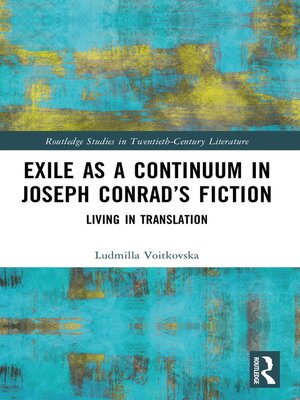Exile as a Continuum in Joseph Conrad's Fiction
ebook ∣ Living in Translation · Routledge Studies in Twentieth-Century Literature
By Ludmilla Voitkovska

Sign up to save your library
With an OverDrive account, you can save your favorite libraries for at-a-glance information about availability. Find out more about OverDrive accounts.
Find this title in Libby, the library reading app by OverDrive.



Search for a digital library with this title
Title found at these libraries:
| Library Name | Distance |
|---|---|
| Loading... |
Joseph Conrad is famous for being an unusual, strange, and even eccentric English writer. However, despite his difference, English criticism has primarily interpreted his fiction from the perspective of the English culture. In turn, Polish criticism has portrayed Conrad as a Pole who happened to write in English. Considering Conrad's transcultural background, neither exclusively English nor an exclusively Polish writer, this volume investigates the essential features of his expatriate writing as a form distinctly different from any writing done within a single culture. Conrad's unique contribution to English literature and sensibility stems from his ability to incorporate the complexity of the exilic condition without discussing it explicitly. Furthermore, this book establishes Conrad's expatriation archetypes and examines them as they manifest themselves not only in a realistic, but, more importantly, in a symbolic mode. Those archetypal features demonstrate themselves through Conrad's thematic choices, narrative structure, and critical discourse that reflect his complex relationship with both the parent and the adopted reader. While the existence of these patterns in Conrad's fiction are not entirely obvious, this book aims to illuminate Conrad's contributions to the current critical debate concerning the place of the author in his/her own narrative.







